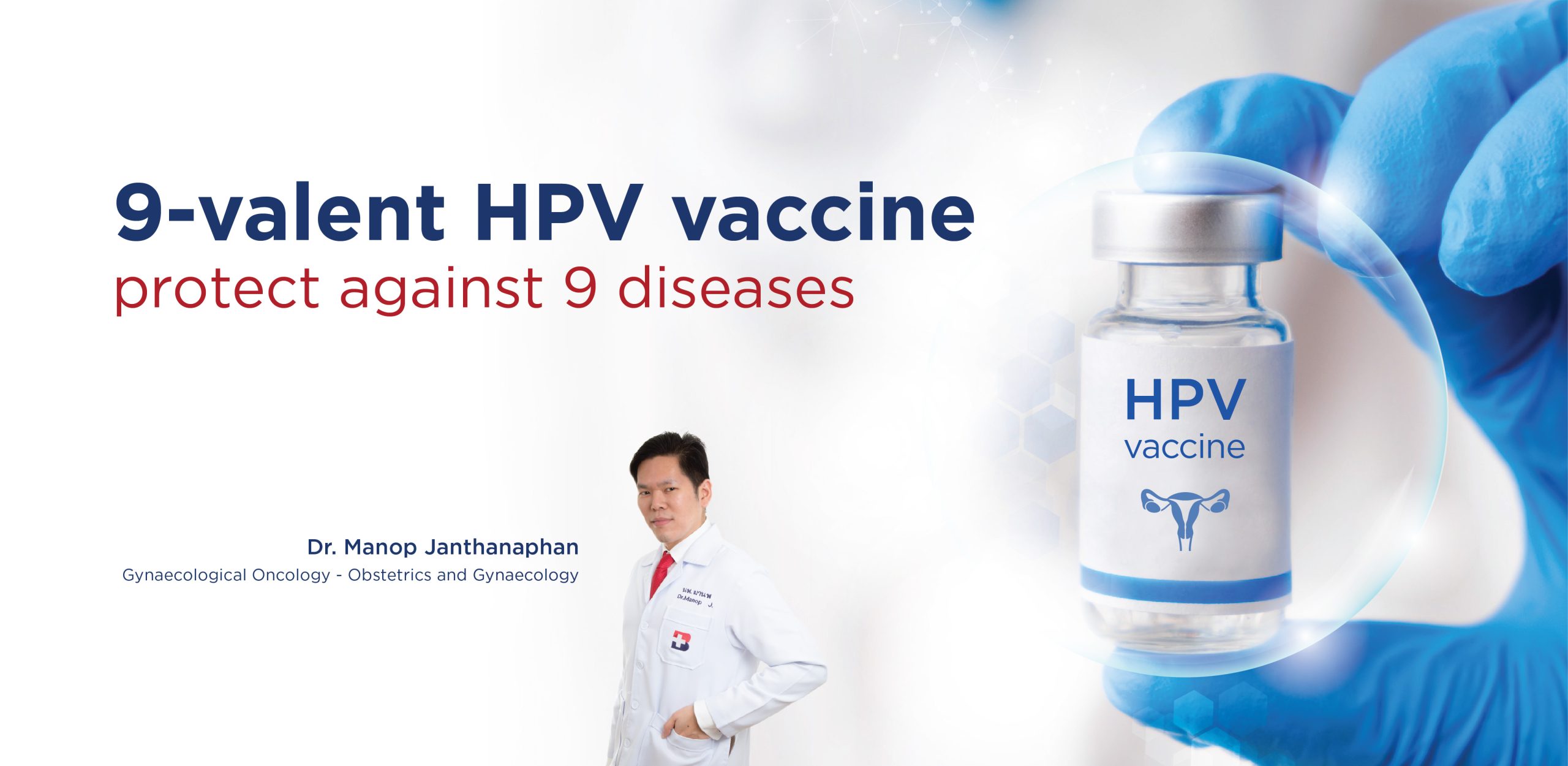
Important Information
- Currently, there are 3 types of HPV vaccines available: 2-valent, 4-valent, and 9-valent vaccines
- Effectively prevents non-cancerous HPV infections, including genital and anal warts, cervical cancer, anal cancer, vaginal cancer, and penile cancer
- Recommended for women and men aged 9-45 years
- Two doses with 6-week interval between the first and second doses
Vaccine efficacy
- Provide 99%* protection against cervical cancer induced by HPV-16 and HPV-18
- Provide 90%* protection against cervical cancer induced by other HPV types
- Provide 90%* protection against genital warts.
Safety
- Certified by the Food and Drug Administration (Thai FDA) of Thailand and other countries
- There are only a few side effects, most of which are mild, such as pain, swelling, redness at the injection site, fever, muscle pain, and headache
Advantages
- Comprehensive protection against cancer and other diseases induced by HPV
- Requires 2 doses only with 6-week interval between the first and second doses
- Great efficiency and safety
Disadvantages
- More expensive than the 2-valent HPV vaccine
- No data on long-term effects available
- There may be side effects after the injection which are pain, swelling, and redness at the injection site
Recommended for
- Girls aged 9 – 14 years should get 2 doses of this HPV vaccine with 6-week interval between the first and second doses
- Women and men aged 15 – 45 years can get this HPV vaccine at their doctor’s discretion
Conclusions
- Choosing the right HPV vaccine type for each patient is a decision made by doctors
- HPV vaccination is the best way to prevent cervical cancer and other diseases caused by HPV, however it is not 100% preventable
- You should use additional methods to prevent HPV infection such as regular vaginal examination, using condoms during each sexual intercourse, and refraining from smoking
